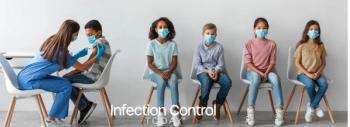
Resources Infection Preventionists Need to Battle COVID-19
As an infection preventionist, I found these to be helpful in establishing plans, training methods, and more.
As the country watches New York struggle against thousands of cases of SARS-CoV-2/COVID-19, many feel this is a brief warning before such surges reach our facilities. In efforts to prepare your healthcare facilities for potential COVID-19 patients, it often feels like there is an onslaught of information. Below are resources which, as an infection preventionist, I found helpful in establishing plans, training methods, and more.
NETEC–
Created following the 2014/2016 Ebola outbreak, NETEC is especially helpful in that it provides a pool of resources from advanced healthcare facilities with biocontainment units. NETEC offers some great webinars, but also training videos for
CDC-
A site I’m sure we have all spent more than enough time on lately, but nonetheless is extremely helpful. For infection preventionists in dental settings or alternate care sites, there are reference documents. Moreover, there are pages for optimizing PPE supplies based off the PPE your facility is struggling with. You can find guidance on anything from eye protection to ventilators and facemasks. The PPE Burn Rate Calculator is also an especially helpful tool. There are also helpful resources to share with patients. For example, if you’re going to discharge a patient and their test is still pending, it’s helpful to
ASPR TRACIE-
This new compilation of resources is also especially helpful for both clinical guidance and event outbreak management. The COVID-19 Healthcare Planning Resources page is quite helpful in that it provides guidance on everything from critical care surge resources to drive-through testing and behavioral health resources. The ASPR page is a bit more high-level in terms of planning, which is something we can all appreciate at the moment. Moreover, the page includes important links like the Centers for Medicaid and Medicare Services (CMS) guidance and wavers pages, which many are utilizing now.
APIC–
Lastly, APIC has provided a nice compilation of information for infection prevention resources, including free online chapters and a survey that sheds light on PPE challenges across the U.S. The APIC site also has great links to webinars and factsheets that can help guide training and staff utilization of PPE.
Overall, these are just a handful of sources to help guide healthcare preparedness and response to COVID-19.
Newsletter
Stay prepared and protected with Infection Control Today's newsletter, delivering essential updates, best practices, and expert insights for infection preventionists.




